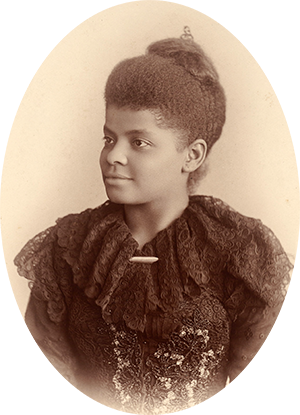Ida B. Wells-Barnett (1862-1931)
Page Content

 Ida B. Wells-Barnett, 1893. (Courtesy of National Portrait Gallery, Smithsonian Institution)
Ida B. Wells-Barnett, 1893. (Courtesy of National Portrait Gallery, Smithsonian Institution)
"No nation, savage or civilized, save only the United States of America, has confessed its inability to protect its women save by hanging, shooting, and burning alleged offenders."
Born into slavery in Mississippi, Wells-Barnett spent her adult life fighting against the racism and sexism of white American southerners. Her politics were galvanized in Memphis, where she wrote and owned a newspaper:
The Memphis Free Speech and Headlight. In the 1890s, Wells-Barnett used her journalism skills to campaign against domestic terrorism in the form of lynching after a friend was murdered by a white mob.
She studied accounts of lynching and published her findings in two pamphlets:
Southern Horrors: Lynch Law in All Its Phases and
The Red Record. Wells-Barnett explained that southern men often got away with murdering African American men by allegedly defending the honor of white women. She noted the unjust irony that, in contrast, most Black women had no recourse against sexual assault by powerful white men.
She often had poor relations with white female suffragists, whom she alleged fanned the flames of racial violence. There was little love lost, and many of these white women were unwilling to open the suffrage movement to Wells-Barnett and other women of color. As a suffragist, Wells-Barnett highlighted the link between racial and gender discrimination, furthering the cause of Black feminism. She saw woman suffrage as a means for Black women to become politically involved and elect African Americans to influential offices.
Next:
Learn More >